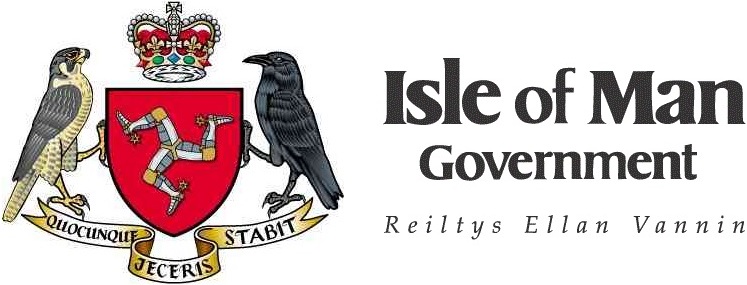Jury Eligibility Criteria Consultation
Background
The last substantive legislative change to jury eligibility was made through the Jury Act 1980 (opens in a new tab). As a result of this Act, women were permitted to serve as jurors for the very first time, the age range for eligibility was expanded meaning that anyone between 18 and 65 could serve and a property qualification was removed. Additionally, certain professions, such as civil servants, teachers, and Commissioners, were no longer automatically excluded from the eligibility to serve as a juror.
As these changes were made almost 45 years ago, there is now a clear need to review and update the jury eligibility framework. This need was recognised by the Tynwald Select Committee on the Jury System (opens in a new tab) in its recommendation:
'Everyone should be eligible to serve on a jury, except those involved in the administration of Justice (including police officers) and Members of Tynwald. Other persons with public duties should be allowed excusal for cause.'
Any revised policy for jury selection should be fair, relevant and ensure jurors represent a cross-section of the Island’s population, whilst maintaining the provision for certain individuals to be excused from the pool of eligibility on a case-by-case basis.
Currently, a jury list is compiled each year from those names on the electoral register and arranged into sheadings. Where a jury trial is required, the Coroner of that sheading will select individuals from the jury list in accordance with the Jury Act 1980.
Under the Jury Act 1980, a number of professions are automatically exempt. These include:
Group A – The Legislature and associated bodies
- Peers and Peeresses entitled to receive writs of summons to attend the House of Lords
- Members of Tynwald
- Members of Statutory Boards and any Committees thereof
- A Clerk to Tynwald or any Branch thereof
- The Tynwald Auditor General
- The Tynwald Commissioner for Administration
Group B – The Judiciary and associated persons
- Deemster
- Judicial Officer within the meaning of section 3C of the High Court Act 1991 (opens in a new tab)
- High Bailiff
- Justice of the Peace
- Attorney General and professional members of his Department
- Any person whose duties are or include acting as clerk to any court of summary jurisdiction
- Chief Registrar
- A person who has at any time been a person falling within any description specified above in this Group
- A person for the time being appointed as an arbitrator pursuant to section 4(6) of the Administration of Justice Act 1983
Group C – Others concerned with the administration of justice
- Advocates, barristers or solicitors whether or not in actual practice as such
- Articled clerks
- Coroners
- Professionally qualified legal executives in the employment of advocates
- Lockmen
- Officers and staff of any court, if their work is mainly concerned with the day to day administration of the court
- A shorthand writer in any court
- Probation officers and persons appointed to assist
- Members of the Staff of any remand centre, detention centre, probation home, probation hostel or bail hostel
- Members of the Parole Committee
- Members of the body established under section 18(1) of the Police Act 1993
- A constable
- The governor and other officers of the Isle of Man Prison
- Persons employed for police purposes by the Department of Home Affairs
- Employees of the Public Services Commission assigned to the Department of Home Affairs
- The Chief Secretary, and those members of the staff of the Cabinet Office whose work is concerned with the administration of justice and who have been designated as such, in writing, by the Chief Secretary
- A person who at any time within the last ten years has been a person falling within any description specified above in this Group
Group D – The Clergy etc.
- A person in holy orders; a regular minister of any religious denomination
- A vowed member of any religious order living in a monastery, convent or other religious community
Group E – Others
- Persons of the following professions if actually practising and registered (including provisionally or temporarily registered) enrolled, certified or licensed under enactments (including Acts of Parliament) relating to that profession:
- Medical practitioners
- Dentists
- Nurses
- Midwives
- Veterinary surgeons
- Pharmaceutical chemists
- The Chief Financial Officer of the Treasury
- The chief executive officer of the Department of Health and Social Care
- The chief executive officer of the Isle of Man Post Office
- The Director of Education
- The Town Clerk of Douglas
- Full time members of Her Majesty's naval, military or air forces
- Members of the fire brigade maintained under the Fire Services Act 1984
- Persons employed for fire-fighting purposes at an aerodrome by the Department of Infrastructure
- Members of Her Majesty's Coastguard Service
- Lifeboat mechanics and crews
- Lighthouse keepers
- Editors, reporters and photographers of newspapers circulating in the Isle of Man and radio and television news reporters
- Qualified masters, certificated engineers and licensed officers of vessels and aircraft actually employed
- Harbour Masters
- Marine Surveyors and Assistant Marine Surveyors
- Industrial relations officers
- The Chief Executive of Manx Care
- Medical practitioners
Group F – Mentally disordered persons
- A person who suffers or has suffered from mental disorder and on account of that condition:
- Is liable to be detained (otherwise than by virtue of an application for admission for assessment)
- Is resident in a hospital or mental nursing home
- Is subject to guardianship
- Is subject to after-care under supervision
- Regularly attends treatment by a registered medical practitioner
- Is liable to be detained (otherwise than by virtue of an application for admission for assessment)
(Expressions in the above head are to be construed in accordance with the Mental Health Act 1998.)
- A person with respect to whom any proceedings under Part 7 of the Mental Health Act 1998 have been commenced and have not been terminated
Group G - Disabled persons
- A person who is registered as a blind person
- A person who is certified by a registered medical practitioner to be so deaf as to be unable to perform the functions of a juror
- A person who is in receipt of an attendance allowance under section 35 of the Social Security Act 1975 (an Act of Parliament), as it has effect in the Island
- A person who is certified by a registered medical practitioner to be suffering from a condition which:
- Is likely to persist for more than 12 months, and
- Is such as to render him incapable of performing the functions of a juror
- Is likely to persist for more than 12 months, and
Section 12(1) of the Jury Act 1980 gives the Chief Registrar discretion to excuse individuals where there is good reason. Circumstances including reasons of conflict, childcare, adult caring responsibilities or whereby attending a case may have a detrimental impact on their employment can all be considered.
In addition, Part II of Schedule 2 of the Jury Act 1980 means that individuals sentenced to life imprisonment or a term of 5 years or more are disqualified from jury service. Those who have served any part of a sentence, been detained in a borstal institution, received a suspended sentence or community service order in the last 10 years, or been placed on probation in the last 5 years are also disqualified.

